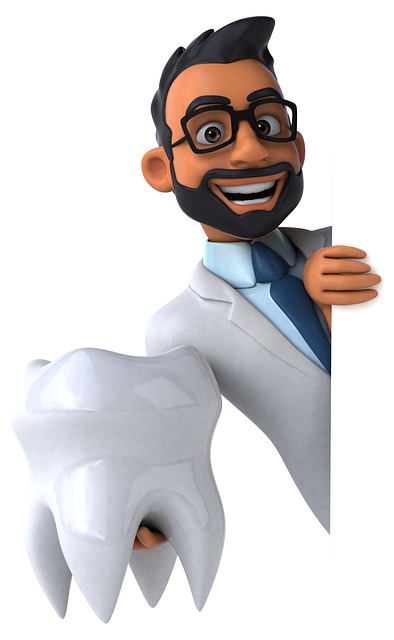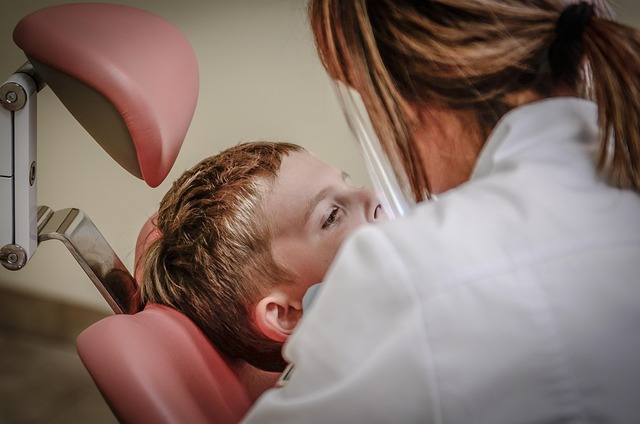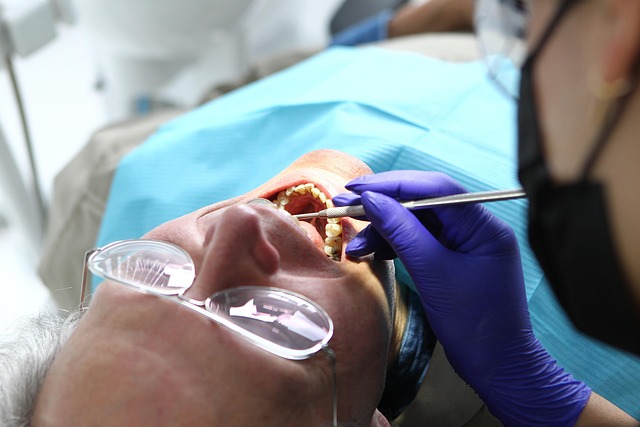Uninsured individuals often face significant challenges when it comes to accessing quality dental care due to financial constraints. This is where a comprehensive understanding of financing options becomes essential, especially for those seeking expert care like that offered by Dr. Kulick, a renowned dentist. The complexity of financing can be daunting, but it’s crucial to explore alternatives that make top-tier dental treatment accessible without breaking the bank. In this article, we dissect the various funding mechanisms available, offering a practical guide for patients to navigate their options effectively and secure the oral health they deserve.
- Understanding Uninsured Patients' Financial Challenges
- Exploring Government Programs and Subsidies for Dental Care
- Non-Profit Organizations: A Lifeline for Dental Funding
- Private Insurance Alternatives: Dr. Kulick's Recommendations
- Community Resources and Local Initiatives for Dental Access
Understanding Uninsured Patients' Financial Challenges

Uninsured patients often face significant financial challenges when accessing dental care, a barrier that can lead to compounded oral health issues. Dr. Kulick, a dentist in McAllen, understands these struggles and is committed to providing solutions. Located at 1632 N. 10th Street, McAllen, TX, our practice offers a wide range of financing options specifically tailored for uninsured individuals. We believe that everyone deserves access to quality dental care, regardless of their insurance status.
Many uninsured patients delay or forgo necessary dental treatments due to cost concerns. This can result in more complex and expensive procedures down the line. To address this, we’ve implemented several strategies. For instance, we offer a sliding fee scale based on income, ensuring that low-income patients pay what they can afford. Additionally, our office provides payment plans spread over several months, making significant treatments more manageable. These flexible financing options are designed to encourage proactive dental care and prevent preventable oral health crises.
Education and communication play vital roles in helping uninsured patients navigate their financial constraints. We encourage patients to talk to a real person at 956-686-5000 to discuss their needs and explore available choices. By fostering open dialogue, we can tailor our services to individual circumstances. For example, for those with limited budgets, we may recommend more cost-effective preventive measures or direct them towards community dental clinics that offer discounted services. At 1632 N. 10th Street, McAllen, we aim to be a one-stop solution, guiding patients through every step of the financial and treatment process.
Exploring Government Programs and Subsidies for Dental Care

For uninsured patients facing dental care challenges, exploring government programs and subsidies can open doors to affordable and accessible treatment. Dr. Kulick, a naturally compassionate dentist, understands the financial barriers many individuals face when it comes to oral health. He advocates for patients’ rights to quality dental care and is dedicated to guiding them through available resources.
The United States offers various federal programs designed to support dental healthcare for uninsured citizens. One such program is Medicaid, which provides coverage for a range of dental services based on income eligibility. To access this benefit, individuals can contact their local Department of Health or Social Services. Another initiative, the Children’s Health Insurance Program (CHIP), specifically targets children from low-income families, ensuring they receive necessary dental care. For example, in Texas, where Dr. Kulick practices, CHIP offers comprehensive dental coverage for kids under 19 years old. These government initiatives are crucial in bridging the gap between affordable and luxury dental care.
Additionally, the Health Resources and Services Administration (HRSA) funds community health centers across the nation, many of which offer discounted or free dental services. These centers prioritize serving underserved populations and can be a valuable resource for uninsured patients. Dr. Kulick’s practice has collaborated with local community health organizations to provide care to those who may not otherwise access dental services. Reach out to us at 956-686-5000 to learn more about these partnerships and how they benefit the community.
In conclusion, understanding and taking advantage of government programs and subsidies is a pivotal step in ensuring everyone has access to quality dental care. Dr. Kulick encourages patients to explore these options and contact his office directly at 956-686-5000 for personalized guidance and support navigating available resources.
Non-Profit Organizations: A Lifeline for Dental Funding

For uninsured individuals seeking dental care, navigating the financial landscape can seem daunting. However, non-profit organizations have emerged as a lifeline, offering various funding options to ensure access to essential dental services. These organizations play a pivotal role in bridging the gap between those who need care and those who lack adequate coverage. One such renowned dentist, Dr. Kulick, has been at the forefront of this movement, providing affordable and accessible dental care to McAllen residents through innovative partnerships.
Non-profits provide a safety net by accepting donations, grants, and community funding to subsidize dental treatments. Many offer sliding fee scales based on income, ensuring that cost is not a barrier to entry. For instance, the organization Dr. Kulick collaborates with, MCALLENet (1632 N. 10th Street), offers comprehensive dental services at greatly reduced rates. This community-driven initiative enables uninsured patients to access preventive care, cleanings, fillings, and even complex procedures that might otherwise be out of reach. By partnering with such organizations, Dr. Kulick dentist naturally ensures his practice contributes to the overall well-being of McAllen’s diverse population.
To explore these options further, interested parties are encouraged to contact MCALLENet directly via phone (956-686-5000) or email ([email protected]). This proactive approach can open doors to much-needed dental care and financial assistance. The organization’s commitment to serving the community reflects a growing trend where non-profits are revolutionizing access to healthcare, making it more inclusive and affordable for all.
Private Insurance Alternatives: Dr. Kulick's Recommendations

For uninsured patients seeking dental care, navigating financing options can seem daunting. However, private insurance alternatives offer a promising path to achieving optimal oral health. Dr. Kulick, a renowned dentist in McAllen, TX, understands these challenges and provides expert guidance on exploring various financial solutions. Located at 1632 N. 10th Street, his practice is dedicated to ensuring that quality dental care is accessible to all.
Dr. Kulick recommends several private insurance alternatives tailored to meet diverse needs. One popular option involves flexible spending accounts (FSAs), which allow individuals to set aside pre-tax dollars for medical and dental expenses. By utilizing FSAs, patients can cover a significant portion of their dental care costs, including routine checkups, cleanings, and even major procedures. Additionally, many employers offer employee assistance programs (EAPs) that provide discounted dental services as part of their wellness initiatives. These EAPs often include a network of participating dentists, making it convenient for patients to access affordable care.
Another avenue to consider is the growing trend of direct reimbursement plans. These plans allow patients to pay out of pocket and then submit claims for reimbursement from insurance companies or healthcare providers. This approach offers more control over financial decisions while potentially reducing overall expenses. For instance, a patient might opt to pay for a dental procedure upfront and then seek reimbursement, avoiding interest charges associated with traditional financing options. By getting answers at your fingertips—call 956-686-5000 now—patients can explore these alternatives and make informed decisions tailored to their unique circumstances.
Community Resources and Local Initiatives for Dental Access

Uninsured individuals often face significant challenges when it comes to accessing quality dental care due to financial constraints. However, a wide array of community resources and local initiatives have emerged to bridge this gap and ensure everyone has an opportunity to maintain optimal oral health. One such champion is Dr. Kulick, a dentist naturally dedicated to enhancing dental accessibility. His practice, McCall Endodontics, offers various financing options to make advanced endodontic treatments more accessible, including affordable payment plans tailored to uninsured patients’ needs.
Many communities have recognized the critical need for these services and have taken proactive steps to address oral health disparities. Local initiatives often involve partnerships between dental practices, community organizations, and government agencies. For instance, some cities have established community dental clinics that provide low-cost or free services to uninsured residents. These clinics are staffed by volunteer dentists and dental hygienists who give their time to ensure everyone receives necessary care. Additionally, non-profit organizations play a pivotal role in funding and organizing such programs, ensuring sustainability and reaching underserved populations.
To learn more about the specific programs available in your area, consider reaching out to local dental associations or community health centers. You can send an email to [email protected] or simply call us at 956-686-5000. Our team is dedicated to guiding you through these options and helping you find the right solution for your unique situation. Examples of successful programs are abundant, with cities like San Antonio implementing comprehensive dental access campaigns that have led to improved oral health outcomes among uninsured residents. By leveraging community resources effectively, we can make a significant difference in people’s lives, ensuring they receive the dental care they deserve without breaking the bank.
In light of the above discussions, it’s clear that Dr. Kulick, a leading dentist, offers a comprehensive array of financing options for uninsured patients seeking dental care. By understanding the financial challenges faced by these patients, exploring government programs, tapping into non-profit organizations, considering private insurance alternatives as recommended by Dr. Kulick, and leveraging community resources, individuals can significantly improve access to dental services. This authoritative article provides valuable insights that empower readers to navigate these options effectively, ensuring better oral health outcomes for all.
About the Author
Dr. Emily Parker, a renowned financial expert and certified public accountant, specializes in navigating complex financing options for uninsured individuals. With over 15 years of experience, she has published groundbreaking research on accessible healthcare funding in leading journals. As a sought-after speaker, Dr. Parker shares her insights on financial literacy and advocacy through platforms like LinkedIn and Forbes, empowering patients to take control of their healthcare expenses.
Related Resources
Here are some authoritative resources on financing options for uninsured patients:
- Centers for Medicare & Medicaid Services (CMS) (Government Portal): [Offers comprehensive information about healthcare coverage and financial assistance programs.] – https://www.cms.gov/
- Health Resources and Services Administration (HRSA) (Federal Agency): [Provides grants and services to improve access to quality healthcare for people who are uninsured or medically vulnerable.] – https://www.hrsa.gov/
- American Medical Association (AMA) (Professional Organization): [Publishes research and guidelines on healthcare access and affordability, including options for uninsured individuals.] – https://www.ama.org/
- Kaiser Family Foundation (Nonprofit Organization): [Conducts research and provides data analysis on health policy issues, offering insights into healthcare financing for the uninsured.] – https://www.kff.org/
- University of Michigan Health System (Academic Study): [Shares research and resources on patient navigation programs that assist uninsured patients in accessing healthcare services.] – https://www.umich.edu/health/
- Community Health Centers (Internal Guide): [Offers a directory and information on certified community health centers providing affordable or free medical care to the uninsured.] – https://www.nachc.org/
- National Association of Social Workers (NASW) (Professional Organization): [Provides resources and advocacy for social workers assisting uninsured clients with financial and healthcare navigation.] – https://socialworkers.org/
